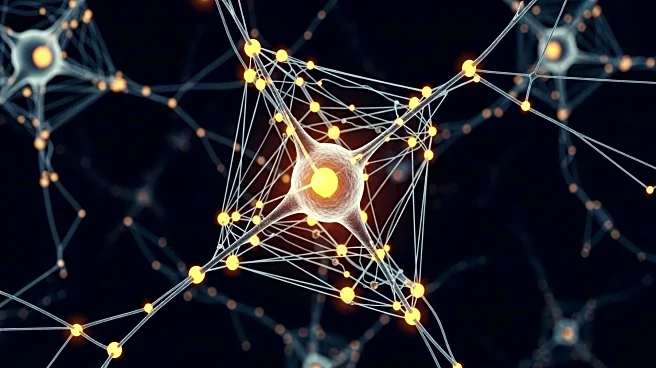What is the story about?
What's Happening?
A study published in Nature examines the expression of immediate-early genes Arc and c-Fos in mice during contextual fear conditioning. Researchers found that these genes show divergent expression patterns across different brain regions and memory states. The study involved administering shocks to mice and analyzing gene expression in the hippocampus, amygdala, and other brain areas. The findings suggest that Arc and c-Fos are differentially expressed depending on the memory state and brain region, providing insights into the molecular mechanisms underlying fear memory.
Why It's Important?
Understanding the expression of immediate-early genes in fear conditioning can advance knowledge of how memories are encoded and retrieved in the brain. This research has implications for developing treatments for anxiety disorders and PTSD, as it highlights specific brain regions and molecular pathways involved in fear memory. The study contributes to the broader field of neuroscience by elucidating the complex interactions between genes and behavior.
What's Next?
Further research may explore how manipulating the expression of Arc and c-Fos can affect fear memory and anxiety-related behaviors. This could lead to new therapeutic strategies for conditions like PTSD. The study's findings may also prompt investigations into other immediate-early genes and their roles in different types of memory and learning.
Beyond the Headlines
The research underscores the importance of considering both genetic and environmental factors in understanding brain function. It may influence future studies on gene expression and its impact on behavior, potentially leading to personalized approaches in treating mental health disorders.















